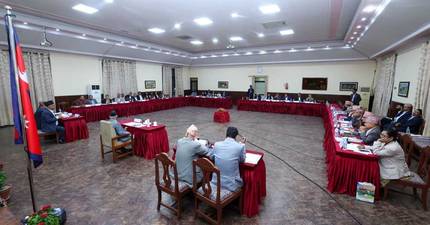Kathmandu, May 18 – In a landmark decision, the House of Representatives unanimously passed the Sahid Dasharath Chand Health Science University Bill, 2081 today, marking significant progress in advancing health education and addressing regional disparities in Nepal. Initially tabled in the National Assembly and backed by the Education, Health, and Information Technology Committee’s report, the bill aims to establish a premier institution dedicated to health sciences in the Far-Western region.
Key Provisions and Leadership Structure
Education, Science, and Technology Minister Raghuji Pant clarified during discussions that the university will operate under a unique co-chancellorship model, with the Education Minister and Health and Population Minister jointly leading. “This dual leadership reflects our vision to integrate education and healthcare, ensuring the institution becomes a hub for both sectors,” he stated.
Regional Equity and Development Focus
Lawmakers hailed the bill as a long-overdue victory for the Far-Western region. MP Yogesh Kumar Bhattarai emphasized, “This initiative fulfills a longstanding demand, delivering justice to the people of the Far-West.” Meanwhile, MP Dr. Amaresh Kumar Singh underscored broader regional imbalances, noting, “Madhesh Province still lacks a single government medical college. This university must inspire similar progress nationwide.”
Legislative Debates and Recommendations
MP Kiran Kumar Sah described the university as a “tribute to the courage of martyr Dasharath Chand.” At the same time, MP Dr. Chanda Karki Bhandari urged non-partisan collaboration: “A institution named after a martyr must rise above political divisions to excel in health education.”
Discussions also highlighted future governance concerns. MP Devendra Paudel advocated for competitive selection of university leadership, and MP Dilendra Prasad Badu pushed for it to be developed as a “model university.” Other participants, including MP Prem Suwal, stressed the parallel need to establish Khwopa University, underscoring broader demands for educational equity.
The session saw active contributions from MPs Damodar Paudel Bairagi, Bijula Rayamajhi, Ram Krishna Yadav, Ram Prakash Chaudhary, Dayal Bahadur Shahi, Prem Ale, and Biraj Bhakta Shrestha, who collectively emphasized the university’s potential to transform healthcare education and regional development.
Looking Ahead
The bill now moves toward implementation, with stakeholders hopeful it will bridge gaps in health education access, empower underserved regions, and honor Nepal’s martyrs through academic excellence. The government faces calls to replicate such initiatives nationwide, particularly in provinces like Madhesh, to ensure equitable growth in the health sector.
This legislative milestone signals Nepal’s commitment to decentralizing quality education and fostering inclusive development, setting a precedent for future policy reforms.













